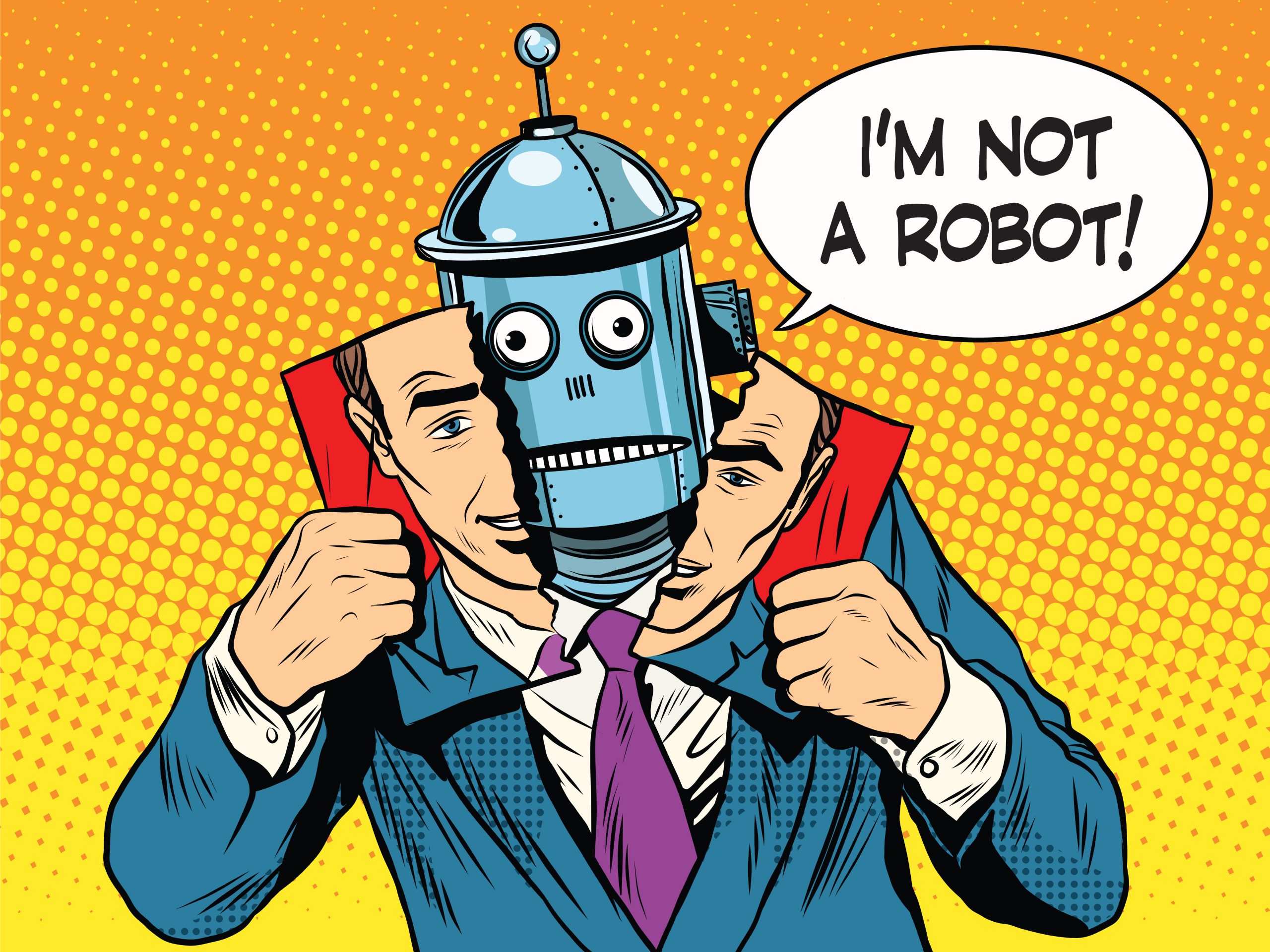“As AI and other forms of technological advancement continue to be used at an increasing rate, the questions posed in this piece and others will only grow in need for the Federal Circuit to provide clear instructions.”
 For the past 60 years, scientists have been able to utilize artificial intelligence (AI), machine learning, and other technological advances to “promote the general science …”. U.S. courts have increasingly come under pressure to not only allow AI-directed applications as patentable subject matter, but also from a small yet determined and growing contingency of IP professionals, to recognize the AIs themselves as the inventors. The EPO recently handed down guidance that AI could not be recognized as inventors on patent applications. The purpose of this piece is not to debate the merits of whether or not AI should be given inventor status on applications which, it has been argued, they are rightly due—nor should it be. It is important, however, to peek beyond the looking glass into a future where AI are given status in the United States that has, as of the writing of this piece, been reserved for human beings. Let’s explore a few main issues.
For the past 60 years, scientists have been able to utilize artificial intelligence (AI), machine learning, and other technological advances to “promote the general science …”. U.S. courts have increasingly come under pressure to not only allow AI-directed applications as patentable subject matter, but also from a small yet determined and growing contingency of IP professionals, to recognize the AIs themselves as the inventors. The EPO recently handed down guidance that AI could not be recognized as inventors on patent applications. The purpose of this piece is not to debate the merits of whether or not AI should be given inventor status on applications which, it has been argued, they are rightly due—nor should it be. It is important, however, to peek beyond the looking glass into a future where AI are given status in the United States that has, as of the writing of this piece, been reserved for human beings. Let’s explore a few main issues.
Patent Rights Belong to the Inventor
As per MPEP Section 301:
“The ownership of the patent (or the application for the patent) initially vests in the named inventors of the invention of the patent. See Beech Aircraft Corp. v. EDO Corp., 990 F.2d 1237, 1248, 26 USPQ2d 1572, 1582 (Fed. Cir. 1993). The patent (or patent application) is then assignable by an instrument in writing, and the assignment of the patent, or patent application, transfers to the assignee(s) an alienable (transferable) ownership interest in the patent or application. 35 U.S.C. 261.”
In the current technological age, many companies whose lifeblood resides with staying ahead of the competition require some form of assignment agreement contingent upon employment. Other companies still have incentive programs to drive innovation and stay at the cutting edge of their given industry. In a world where AI are given equal status as inventors, no company would own the rights associated with an AI’s inventions. The further questions in the logic stream would have to be “Can an AI enter into a legally-binding assignment agreement with another entity, and if so, how could such an arrangement be done?” This would require much guidance from the courts, and the time it would take to do so could allow chaos to run amok while a determination was made.
Licensing
The provisions of the Constitution are quite clear when it comes to the purpose of having a patent infrastructure in the first place—“to promote the progress of science and useful arts, by securing for limited times to authors and inventors the exclusive right to their respective writings and discoveries” (U.S. Constitution. Article I Section 8, Clause). With an AI serving as inventor, how does one go about obtaining a license to such technology? We could be living in a world where AI have {limited} monopolistic control over a growing number of patents as the use of AI only increases year over year. Without further amendments or court guidance, this would result in a company that created the AI being in the awkward position of infringing the very technology which came about under their own auspices, and paid for at their own expense (I don’t know if AI have mobile banking set up yet).
Citizenship of the Inventor Determines Geography
Say the aforementioned hurdles are all overcome, through court precedent or otherwise. In part, guidance would have to include instructions regarding citizenship-based limitations on foreign filing. MPEP 1806states that to file a Patent Cooperation Treaty application, one inventor or assignee must be a citizen of a Contracting State (PCT Article 9, PCT Rule 18). Such a determination would be impossible without not only recognizing AI as a legal entity for purposes of inventorship, but further still the human distinction of being a citizen, with all the rights and duties that come along with such a distinction.
Inventor Rights Act of 2019
We are years away from the Inventor Rights Act of 2019 (IRA’19) materializing into anything actionable, assuming it ever does. If it ever does, however, individual inventors’ rights will be heightened and reinforced as many have been crying for at least since Alice. Now lump in AI to this to-be-strengthened category of inventors. One provision of the IRA’19 as it currently is proposed would allow for an inventor to file for preliminary injunction on an accusation of infringement. It is bad enough getting sued for patent infringement—now imagine it is an AI acting as plaintiff. This is where the thought experiment waxes philosophical: Would an AI be entitled to damages? Could an AI be subpoenaed as a defendant in patent litigation were they named as an inventor?
AI Issues are Not Going Away
As AI and other forms of technological advancement continue to be used at an increasing rate, the questions posed in this piece and others will only grow in need for the Federal Circuit to provide clear instructions. Industries the world over are integrating AI into their daily operations, and using them to innovate in areas the human mind has been incapable of so doing historically. The use of AI in these areas has overcome one hurdle of even being patentable subject matter in the first place, and they may be overcoming the hurdle of personage sooner than we think, ushering in a new set of judicial Pandora’s boxes.
Image Source: Deposit Photos
Author studiostoks
Image ID: 102205474

![[IPWatchdog Logo]](https://ipwatchdog.com/wp-content/themes/IPWatchdog%20-%202023/assets/images/temp/logo-small@2x.png)

![[Advertisement]](https://ipwatchdog.com/wp-content/uploads/2024/04/Patent-Litigation-Masters-2024-sidebar-early-bird-ends-Apr-21-last-chance-700x500-1.jpg)

![[Advertisement]](https://ipwatchdog.com/wp-content/uploads/2021/12/WEBINAR-336-x-280-px.png)
![[Advertisement]](https://ipwatchdog.com/wp-content/uploads/2021/12/2021-Patent-Practice-on-Demand-recorded-Feb-2021-336-x-280.jpg)
![[Advertisement]](https://ipwatchdog.com/wp-content/uploads/2021/12/Ad-4-The-Invent-Patent-System™.png)







Join the Discussion
3 comments so far.
Anon
June 13, 2020 02:14 pmSorry MaxDrei – but THAT would be anathema to the US sense of the individual and the Lockean nature of inchoate right.
It would also merely serve the Feudal-like Guild mentality that is simply NOT the best way to promote innovation.
You have been shown these points previously (and not just by me). You attempted to turn that last discussion with Ternary into some type of “you did not convince me” thing when what you should have been doing was listening.
Mighty disrespectful of you.
MaxDrei
June 13, 2020 08:53 amOne way to address the issue of an AI as inventor is to adopt the scheme provided by the Patents Act of 1977 in the UK, Section 39(1) reproduced below. An invention made by an “employee” belongs ab initio to the employer. No assignment needed.
How has Section 39(1) played out, in the years since 1978? No problems! Maybe that’s because third parties have no locus to dispute ownership or inventorship; only an aggrieved inventor wrongfully deprived of their property.
What else but the “employer” is the owner of the AI inventor?
Section 39(1)
Notwithstanding anything in any rule of law, an invention made by an employee shall, as between him and his employer, be taken to belong to his employer for the purposes of this Act and all other purposes if
(a) it was made in the course of the normal duties of the employee or in the course of duties falling outside his normal duties, but specifically assigned to him, and the circumstances in either case were such that an invention might reasonably be expected to result from the carrying out of his duties; or
(b) the invention was made in the course of the duties of the employee and, at the time of making the invention, because of the nature of his duties and the particular responsibilities arising from the nature of his duties he had a special obligation to further the interests of the employer’s undertaking.
Darryl Flood
June 10, 2020 10:56 pmIt could lead to an intellectual property nightmare when a robot whose sole purpose is to string together random notes comes up with millions of permutations of notes within fifteen minutes and then the whole body of work is copyrighted. No human effort would need to be made, but the machine-produced music would be held hostage forever, because robots don’t pass away. And since finding the random combination of notes that is required for writing music would have been done already, the poor human musicians would not be able to make any music at all.